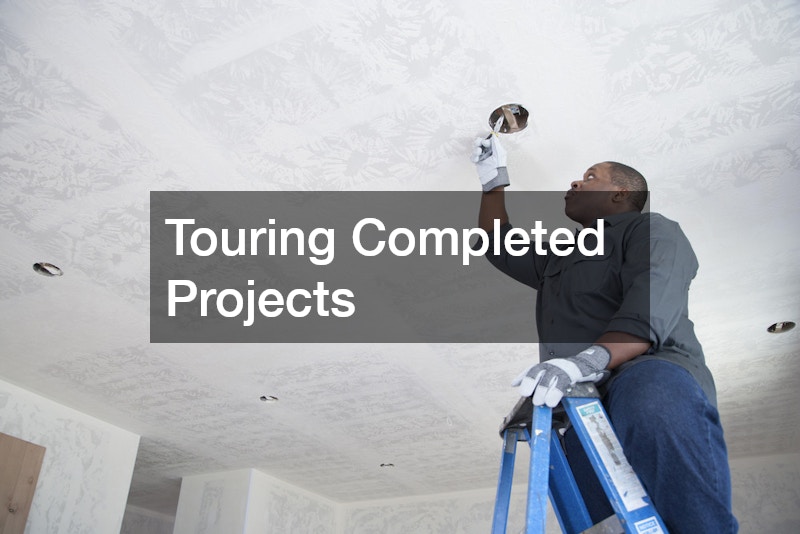Building a new home is an exciting and significant undertaking. The process comes with a plethora of decisions and planning, and a successful project starts with the right questions. Here’s a guide on the essential questions to ask local home builders before embarking on your home-building journey.
1. What is the estimated timeline for the project?
Understanding Project Phases
A breakdown of the various stages of home construction and their expected timelines provides clarity and helps manage expectations. When you understand each phase—from initial groundwork to final touches—you’ll be better prepared.
Transparency about the timeline also helps synchronize other related processes, such as financing and moving plans.
Each phase of construction often has its own unique timeframe. For instance, the foundation laying might take a few weeks, while framing and roofing could extend for a month or more. Recognizing these timeframes allows you to set realistic completion expectations.
Moreover, inquiring about timeframes helps identify any builder-specific efficiencies. Builders with a proficient record often adhere more closely to timelines, which minimizes disruptions. This conversation will illuminate the builder’s experience and ability to manage project timelines effectively.
Handling Delays and Potential Problems
Learn how builders handle unforeseen delays and the strategies in place to mitigate them, ensuring a smoother construction process. Understanding what contingencies are available provides peace of mind when challenges arise. Builders should explain how they navigate weather issues, supply chain disruptions, or labor shortages.
Addressing potential problems before they occur can greatly reduce stress during construction. Some builders utilize buffers in their scheduling to account for inevitable delays. Others emphasize the importance of regular updates and transparent communication.
In discussing these strategies, you gain an insight into a builder’s problem-solving skills and their commitment to maintaining project momentum. Builders who prioritize communication during delays demonstrate their professionalism and dedication to client satisfaction. Ensure your chosen builder maintains a proactive stance towards potential obstacles.
2. What are the costs involved, and how are they estimated?
Breaking Down the Budget
An itemized budget breakdown will provide transparency on costs, including materials, labor, and additional fees. Clarity on what each stage costs helps prevent financial surprises and allows for better budgeting. This understanding is crucial, especially when evaluating bids from different builders.
It’s important to discuss how cost estimates are originally calculated and if they incorporate potential variability. For example, builders often account for material price fluctuations or labor rate changes in their estimates. By delving into the specifics of budget breakdowns, you ensure all financial bases are covered.
Such discussions should cover both visible costs, like permits and labor, and hidden expenses, like transportation of materials. A detailed budget not only guides the financial aspect but also serves as a foundational document for the project’s scope. A comprehensive financial overview enables smarter decisions throughout the project.
Understanding Change Orders and Additional Expenses
Explore how builders communicate any changes to the project and their impact on the budget, along with ways to keep costs under control. Home-building often requires adjustments; knowing how these are managed financially offers significant peace of mind. Builders’ methods for integrating change orders reveal much about their adaptability.
Change orders, if not handled well, can inflate costs and timelines considerably. Therefore, understanding the process for approving and implementing them is essential. Builders should provide guidelines on how they prioritize changes and the financial repercussions that accompany them.
Keeping potential additional expenses manageable often involves setting upfront agreements on the handling of such expenses. By establishing a clear pathway for addressing unexpected costs, you safeguard against financial strain. Discussing these components helps you work more effectively with your builder to ensure fiscal responsibility.
3. Can you provide references from past clients or projects?
Evaluating Builder Reputation
Discover the importance of checking references and how it can provide insight into a builder’s reliability and quality of work. Speaking with past clients reveals much about the builder’s adherence to timelines, budgeting, and the quality of finishes. Experienced builders with a strong reputation often happily provide these references.
Regular feedback and testimonials from past clients can significantly influence your decision. References provide firsthand accounts of the builder’s capabilities in real-world scenarios, offering insights not just into completed projects but also how builders operate under pressure. Reviewing these references may confirm or challenge your builder choice.
Furthermore, references enable you to gauge customer satisfaction, highlighting any issues previous clients encountered. They can reveal patterns—positive or negative—that inform your choice more robustly than any marketing material can. A builder willing to provide comprehensive references demonstrates confidence in their work and past projects.
Touring Completed Projects
Find out how viewing past projects can give a tangible sense of a builder’s style and capability, aiding your decision-making process. Experiencing a builder’s work first-hand by touring completed projects allows for a direct evaluation of craftsmanship and attention to detail. Such tours can be integral in visualizing your home’s potential.
When you walk through a completed home, you have an opportunity to see how choices in material, design, and layout translate into reality. These tours can reveal aspects of a builder’s work that may appeal to you, such as the quality of finishes or the efficiency of design. You might discover unique design elements you hadn’t considered but now wish to incorporate.
Starting a home-building project requires thorough due diligence. By asking the right questions, you safeguard your investment and ensure a process that is as efficient and stress-free as possible. Use this guide as a stepping stone to a successful partnership with your local home builders.











